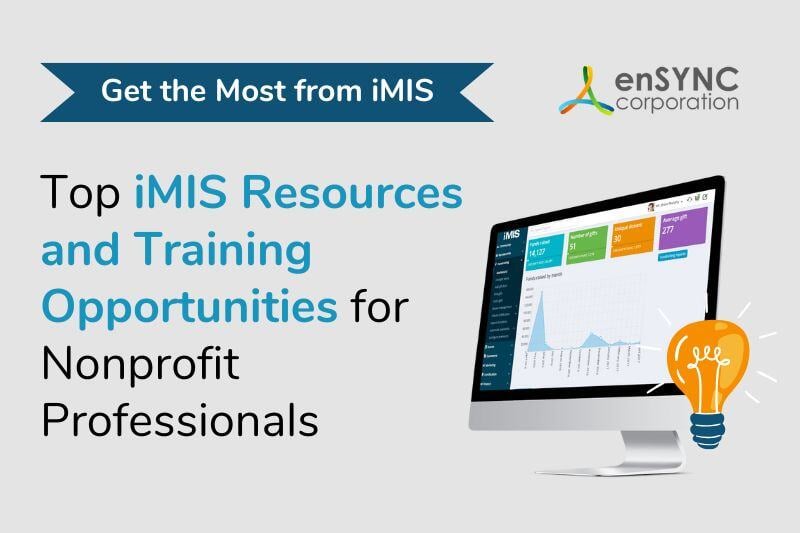Technology & digital transformation | Strategy & planning | Healthcare & medical associations
7-Step Online Marketing Strategy for Healthcare Associations
October 14, 2022
|
Revamp your healthcare association with digital marketing strategies that attract today’s young healthcare professionals. This guide puts you on the right path with valuable marketing, content, and technology tips that align with your organization’s goals.
In a hurry? Then download our expert playbook tailored for healthcare associations looking to make a fundamental transformation. You’ll get everything you are about to read, plus more tips and strategies in a convenient PDF format.
Looking to future-proof your healthcare association?
The digital age has given healthcare associations new tools to adapt to the demands of young healthcare professionals. Associations can choose to innovate to access this valuable market or risk slipping into irrelevance.
The new generation of healthcare professionals understand the importance of digital innovation to streamline operations and improve the patient experience. That’s why it's imperative that your association catches up to meet their demands. A healthcare marketing plan with a digital focus will help your organization make that critical transition.
Here are seven steps to get you started:
Step 1: Set your goals and KPIs
Setting goals and key performance indicators (KPIs) gives your organization a clear direction. Tracking marketing performance with critical metrics gauges the success of your plan and gives you the ability to pivot your strategy when required.
How to set association goals
Start by brainstorming 3-5 initial goals you want to achieve within the next 3, 6, or 12 months.
Do you want to increase memberships, boost non-dues revenue, or reduce member churn? Choose goals that are meaningful, and make the process effective by using the SMART formula to set goals that are:
- S: Specific
- M: Measurable
- A: Attainable
- R: Realistic
- T: Timely
Define your KPIs
Each goal should have associated KPIs that help you measure the success of your strategy.
For example, if you have a goal to increase memberships, you should be tracking KPIs such as:
- Newsletter sign-ups
- Social media engagement
- Website hits
- Website conversions
The above KPIs indicate how well your medical marketing strategy is working. Each part of your marketing plan should be monitored to identify what works and what doesn’t. That way, you can adjust your strategy over time to ensure a steady upward trend.
Step 2: Evaluate the member experience
Once you’ve set your goals, take a look at the current member experience to identify any service gaps that need to be filled.
Healthcare practitioners consistently use online services from established healthcare brands to efficiently do their jobs and serve patients better. Try matching your digital services to meet their high expectations by identifying medical association management areas that may need improvement.
Some questions to ask include:
- Does your website look consistent on all devices?
- Is your portal hard to use?
- Can users find what they are looking for within a few clicks?
- Is the website accessible to users with differing vision and physical abilities?
- How easy is it to pay dues or sign up for courses?
To get a clear picture, you can send surveys to current and former members that did not renew. The process can be time-consuming and resource-intensive, however it's essential to ensure your services are top-notch before starting your marketing plan.
Step 3: Upgrade Software Systems
Modern nonprofit healthcare software and strategy solutions integrate to share data, reduce redundant tasks, and streamline operations to make workflows faster and easier. If you determined that you need a system overhaul in Step 2, consider implementing new software to take advantage of these innovative tools.
Imagine using a membership management application that connects with your finance and marketing departments to share member data. Consider the time your staff will save from duplicate data entry, automated workflows, and cloud-based tools that enable them to work from anywhere.
Articles, videos, news updates, and social media posts are easier to create, publish, and share when your software works together. You’ll also benefit from tools that leverage search engine optimization (SEO) practices to ensure your content gets found on search engines.
Step 4: Create customer personas
Now that the fundamentals are in place, it’s time to create content that speaks to your ideal target audience. Creating customer personas or avatars is a critical marketing tactic that helps you identify and reach the right audience.
Get started by researching key information that includes:
Demographics: age ranges, income levels, education, healthcare job title/position, family size, marital status, household income, buying habits, online and traditional media sources
Psychographics: values, goals, motivations, challenges, and pain points
Messaging: key messages that address challenges, alleviate pain points, and help members reach personal and professional goals
Step 5: Determine your marketing budget
Parts of your marketing strategy should include paid search, pay-per-click ads, and other online advertising campaigns that drive users to your website. Most associations start within the 5-15% range, and can move up depending on their goals.
Online advertising is complex, and mistakes can be costly. Consider hiring a marketing agency or public relations firm to assist your marketing department in getting a good return on your investment.
Step 6: Start creating content
Now that you know who you’re talking to, start creating content that speaks directly to your target audience.
Examples include:
- Email marketing
- Articles and blog posts on your website
- Guest posts on partner websites
- Social media marketing on networks like LinkedIn, Facebook, Youtube, and Twitter
The vast types of content and choice of platforms can be overwhelming for some users when starting out. Try launching marketing campaigns on two or three social media platforms to start, and build your audience from there.
Step 7: Launch a professional referral program
Sometimes the best way to grow your organization is to allow the community to take the lead. Professional growth programs make that possible with one-to-one mentorship, virtual meetings, and in-person events that enable members to connect and collaborate.
Healthcare associations should function as an avenue that helps new and veteran professionals maximize their impact on the communities they serve. Digital healthcare solutions give you the tools to help them advance their careers while adding value to member services.
Get the Healthcare Association Playbook that simplifies your marketing strategy
The guide you just read is a great start to creating an online marketing strategy that helps you modernize your association to improve services and attract new members.
Take your exploration a step further with our Healthcare Association Playbook. You’ll discover more strategies, tips, and insider info in a convenient PDF format you can easily save and share with members of your team.
Recent Posts

Get the Most from iMIS: Top Resources and Training Opportunities for Nonprofit Professionals
The right association management software system provides what your members need by keeping them engaged while also helping your organization stay...

Bay County Medical Care Facility Improved Reporting Accuracy by 70% with Sage Intacct
Bay County Medical Care Facility (BCMCF) is a government-owned and -operated skilled nursing community with 200+ beds dually certified by Medicare...
Enjoying our blog?
At enSYNC, we want to empower associations and nonprofits to make well-educated decisions. If you want our industry knowledge (and other free guides) sent directly to your inbox, fill out the form below.


